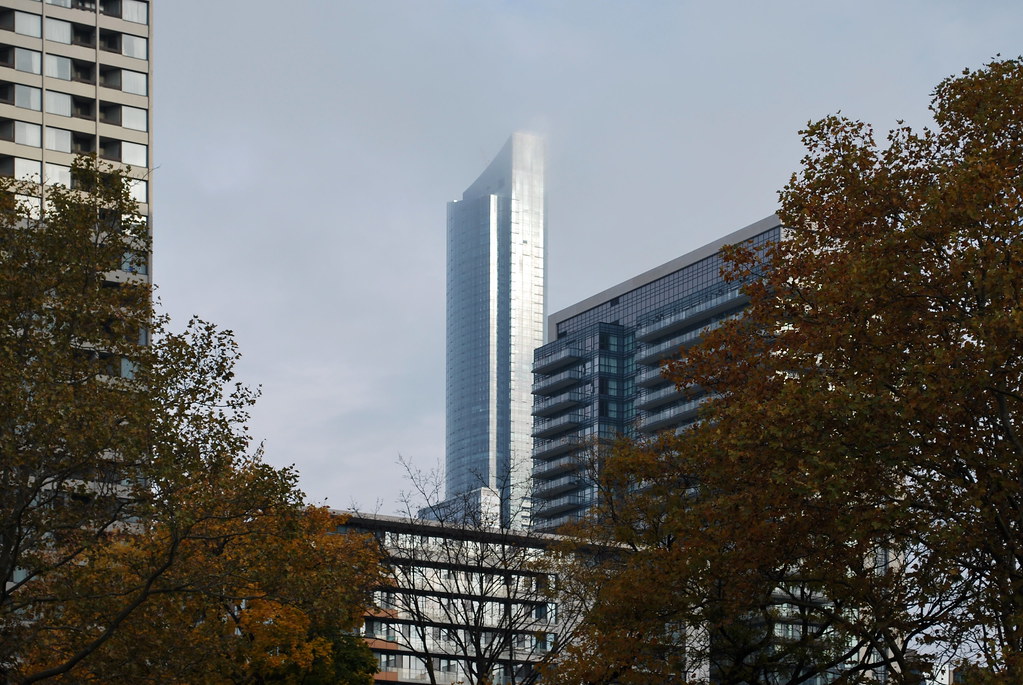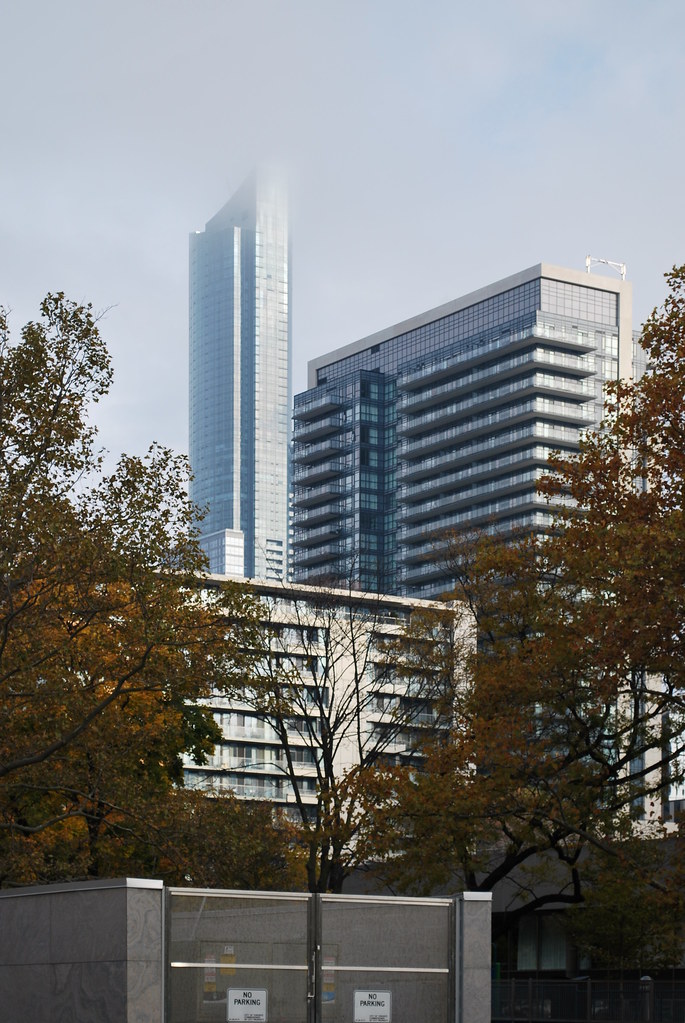Modern, what you are saying is mostly true, but the full truth is not attained by deemphasizing parts of the story, or simply leaving parts out all together.
Yes, architects specify materials to fit the budgets set by developers. What you are not speaking to though is that budgets change, sometimes simply at the behest of a developer who wants to spend less, other times to deal with the escalation of prices (which can come about from increased labour costs, material costs, or equipment costs). Projects therefore are often re-specced, with the architects being asked to find savings.
Sometimes features/details are simply dropped, (ones which would not constitute a material change for the purposes of closing on purchase agreements with unit buyers), more often though less expensive materials are substituted for ones which were originally specified - typically ones we would consider more aesthetically pleasing. The most obvious examples of this practice would likely be windows, whether cheaper glass gets used (a building ends up with a green tinge when no rendering ever hinted at that) or whether the glazing system is simply downgraded from curtain wall to window wall. There are countless other places where savings can be found, no need to go into more of them.
So, yes, architects specify materials, but no, they do not always specify what they would prefer to. Without us having sat in on the decision making process for any building, Aura or otherwise, we cannot know for certain what determined the final material mix for any project, so it is impossible for any of us to apportion 'blame'. In the end, developers have to decide what they want to spend, and what they are prepared to have the building look like based on their budget. They might be presented with bad options from less experienced architects, but it is also their choice of which architects to hire.
I think that Urban Toronto readers would rather that all buildings be of the highest standards, but the market requires price points throughout the range of affordability. It's too bad in this case that such a prominent building was not built to higher standards.
 .
.


